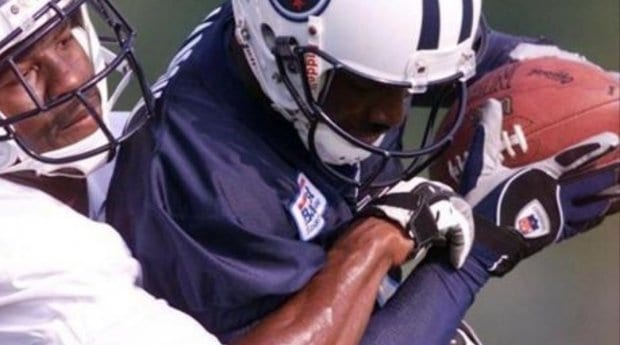The Canadian Football League (CFL) is kicking off this year’s season with a new initiative that aims to support and encourage LGBT youth to participate in sports.
The Hi-5 program, launched June 25 in conjunction with this week’s opening games, is “revolutionary,” says Wade Davis, an openly gay retired US National Football League (NFL) player and executive director of the You Can Play Project.
Last season, the CFL partnered with You Can Play, a North American organization that works to enhance the safety and inclusion of LGBT athletes, coaches, and fans. You Can Play currently has partnerships with other professional leagues, including the National Hockey League (NHL) and the Canadian Olympic Team.
Each of the CFL’s nine teams now has a designated ambassador who will connect their team with local youth-serving LGBT organizations. The plan is for each team to meet with LGBT youth so that both parties can share their stories. Four of the nine teams will receive training this year to participate in the program, and the remaining five teams will be added next year.
“As someone who never felt safe enough to be openly gay in sports, one of our biggest missions is to make sure that kids who are LGBT can know that this is a space they can thrive in, and that their counterparts are mindful of their actions and language,” Davis says.
The aim of these meetings is to reduce the barriers LGBT youth may face in sports, and to show youth that they have allies in professional athletes.
“If you can play, you can play,” says Sara Moore, marketing vice-president for the CFL. “We want Canadian kids playing Canadian football and we don’t want anyone stopping for any reason.”
Davis says he hopes the program will debunk anti-gay stereotypes and help straight athletes change their way of thinking.
“One of the biggest issues that [gay athletes] face is just the label of being a gay athlete. Any athlete worth his or her weight is worth just that — an athlete. But once the label gay is put in front of you, there’s certain myths,” Davis says. “For gay athletes, it would be that they’re weaker . . . you aren’t tough enough to survive the locker room, football field, or athletic field.”
Davis says the opportunity to answer questions from the players and help them find ways to get more involved is deeply rewarding.
“When you can walk up and players ask you questions about how they can be more involved — who see the power in using their voices to affect change,” Davis says, “and to have over half the players who attend come up and say thank you . . .
“If you’re not LGBT, you don’t often think about your language or how your words could impact them,” he adds.
The CFL ambassador for the BC Lions is Marco Iannuzzi. Other ambassadors include Zander Robinson (Toronto), Brad Sinopoli (Ottawa), Mike Reilly (Edmonton), Jon Cornish (Calgary), Rob Bagg (Saskatchewan), Teague Sherman (Winnipeg), Brian Bulcke (Hamilton), and Kyries Hebert (Montreal).
Both Cornish and Iannuzzi were early supporters of the campaign, Moore says, and have been vocal about the need for inclusivity and activism for gay rights within the CFL.
The CFL will once again be marching in Toronto’s Pride parade this weekend, she notes. Joining the delegation this year will be newly appointed league commissioner Jeffrey Orridge, who started April 29.
According to the CFL’s director of communications, Paulo Senra, Orridge’s participation will mark the first time that a professional sports commissioner will walk in a Pride parade.
“I hope teachers, coaches, and principals start to have these larger conversations,” Davis says, “so that youth know the adults in the world know that they exist.”
Watch Daily Xtra’s 2012 video with Cornish here.


 Why you can trust Xtra
Why you can trust Xtra


